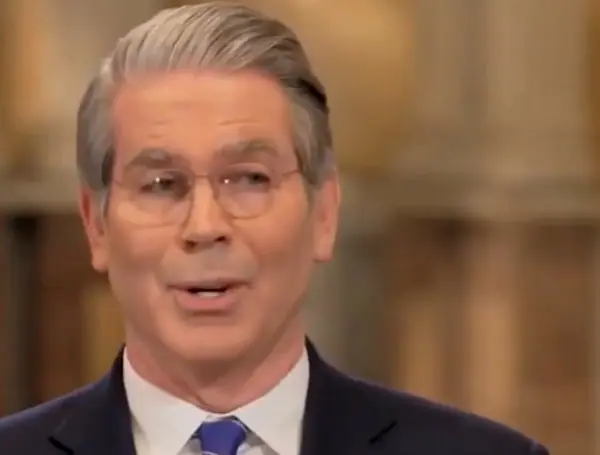Treasury Secretary Scott Bessent said Sunday that the American public’s growing recession fears are largely “media-driven.”
Bessent disputed recent headlines that claimed the Dow Jones Industrial Average is headed for its worst April since 1932, stating that the stock market is bouncing back after its major drop earlier in the month. A poll conducted by ABC News, The Washington Post, and Ipsos found that 72% of Americans believe it is “likely” that President Donald Trump’s tariffs will cause a recession.
READ: Rubio Disputes “Misleading” Reports Of U.S. Citizen Children’s Deportation
“When I look at some of the things that are being published, there was a story 10 days ago that said, ‘this is the worst April for the stock market since the Great Depression.’ Ten days later, the NASDAQ is now up in the month of April, and I haven’t seen a story that says, ‘oh, the stock market has seen [its] biggest bounce back ever.’ So, I think a lot of this is media-driven,” Bessent said on ABC’s “This Week.”
The Wall Street Journal issued a stark warning about the stock market in its April 21 piece, “Dow Headed for Worst April Since 132 as Investor Sent ‘No Confidence’ Signal,” stating that Dow Jones Industrial Average dropped by almost 1,000 points. The article further stated that the S&P 500’s performance since Jan. 20 is the worst for any president since 1928.
After a plunge on April 21, the stock market surged 1,016.57 points, or 2.66%, the following day while the S&P 500 and NASDAQ rose 2.51% and 2.71%. The market continued to bounce back throughout the remainder of the week, with the S&P 500 and NASDAQ gaining 4.6% and 6.7% by Friday, according to CNBC.
The markets rose on April 22 when Bessent said there will be a “de-escalation” in Trump’s trade war with China, according to CNBC. After Trump’s initial tariff announcement on April 2, the U.S. entered a trade war with China after the country retaliated with steep tariffs of its own, causing the nation to face tariffs of up to 245%, the White House said April 15.
READ :Scott Bessent: China Needs Access To US Market More Than America Needs Access To Their Economy
By April 9, Trump said he would raise the tariffs on China from 104% to 125% after he had implemented a 90-day pause on every other country to leave room for negotiations. The next day, Trump announced that the tariff rate would rise to a minimum of 145% on all Chinese tariffs, according to The New York Times.
Trump said Tuesday that the U.S. intends to ease tariffs on China “substantially,” though they will not be eliminated completely. White House press secretary Karoline Leavitt told Fox News on April 23 that that there will be “no unilateral reduction in tariffs” on China, stating that the country must negotiate with the U.S.
Trump said he has negotiated over 200 trade deals with foreign countries following the 90-day pause on reciprocal tariffs.
Please make a small donation to the Tampa Free Press to help sustain independent journalism. Your contribution enables us to continue delivering high-quality, local, and national news coverage.
Connect with us: Follow the Tampa Free Press on Facebook and Twitter for breaking news and updates.
Sign up: Subscribe to our free newsletter for a curated selection of top stories delivered straight to your inbox.

First published by the Daily Caller News Foundation.
